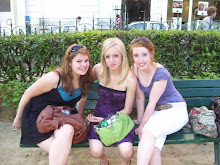Curtis's films, produced around the New-Labour years are indeed a direct representation of the political situation at hand in the UK. Curtis took New Labour's optimism and glorified happiness and transfered it into equally optimistic films surrounding love and happiness.
"He seems to want his films to evangelise the idea that the world is nowhere near as grim as most filmmakers like to think"(- for example Bridget Jones, a key example of a euphoric, New Labour character who brings happiness and laughter to the world.)
Curtis, or as it is dubbed 'Curtisland', is a reversal of the general order of cinema- Curtis's films are seen as an optimist amidst many pessimistic films produced at this time.
Curtisland continues from the positivity surrounding the introduction to New Labour and Blair going into the 'Brown era'. For example, Curtis' latest movie, The Boat That Rocked once again captures the political motion of the time. This is similar to other Curtis films such as the political situation at the time of Love Actually and in particular, Hugh Grants portrayal of Blair.
There are also, of course, classic Curtis characters which appear in most, if not all of Curtis' films- "hopeless floppy-haired young man in love, Hugh Grant in Notting Hill, Four Weddings and Tom Sturidge in The Boat That Rocked.
"Curtisland a place where anything can be recycled"

No comments:
Post a Comment